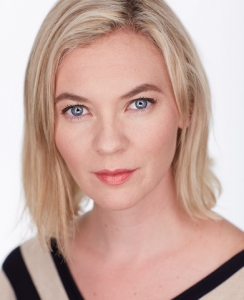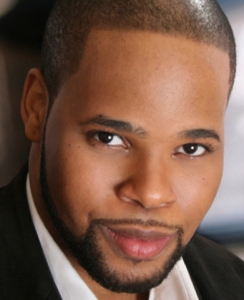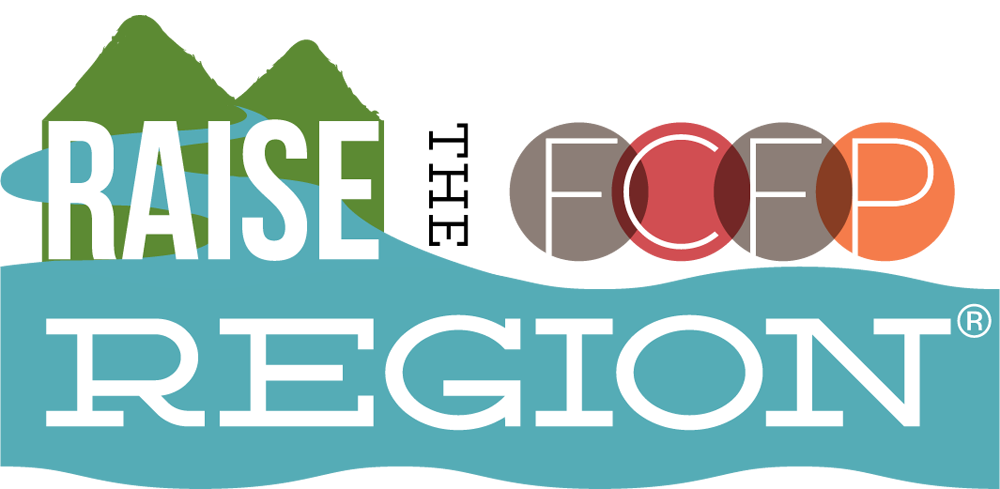Serenade to Music
The Music of Ralph Vaughan Williams
Saturday, October 26, 2019 at 7:30pm
Sunday, October 27, 2019 at 3:00pm
Zion Lutheran Church
Sunbury
A celebration of three superb works by the masterful Romantic Era composer, this concert will feature a soprano and baritone soloist. In addition to the title piece, the SVC will also perform Toward the Unknown Region and Dona Nobis Pacem. This unique program pulls inspiration from an iconic poet, playwright, and other poignant scribes.
Meet the Soloists

Corrine Bryne,
Soprano
“Celebrated singer” (Broadway World) Corrine Byrne’s recent roles include Filia (Jepthe), Anna I (Die Todsünden) Lady Madeline (The Fall of The House of Usher), Doctor (The Scarlet Professor), Cathy (The Last Five Years), Gretel (Hansel and Gretel) and Anima (Ordo Virtutum). Byrne has made appearances with The Lucerne Festival Academy Orchestra, REBEL Baroque Ensemble, Boston Early Music Festival, Mountainside Baroque, the Lake George Music Festival Orchestra, One World Symphony, Plymouth Philharmonic Orchestra, Kansas City Baroque Consortium, the Madison Bach Musicians, Amherst Symphony, West Shore Symphony, Harrisburg Choral Society, Westchester Oratorio Society, New Music Miami, Lorelei Ensemble, the Tallis Scholars & Carnegie Hall Chamber Chorus, and is a core member of the Schola Cantorum of St. Vincent Ferrer Church in Manhattan. Byrne is a co-founder of Ensemble Musica Humana and The Byrne:Kozar:Duo, whose recording of ‘Bring Something Incomprehensible Into This World’ was featured in the New Yorker Magazine’s 2017 Notable Recordings.Byrne is a member of Beyond Artists, a coalition of artists that donate a percentage of their concert fee to organizations they care about. She is currently serving as the Chair of Vocal Studies at the Longy School of Music at Bard College.

Samuel McDonald,
Baritone
Baritone Samuel McDonald has been praised for his singing and artistry which is “warm, expressive [and] first rate…” (Nino Pantano) and “…full of focus, passion, and enough elegance to impart fresh air into Bel Canto…” (GMM, Inc.) His recent awards include 2nd prize in The Barry Alexander International Vocal Competition, local and regional winner of the NANBPWC Vocal Arts Competition and a finalist in The Opera Ebony Benjamin Matthews Vocal Competition, The National Vocal Arts Competition, The Harlem Opera Theater Vocal Competition and The Alltech Opera Scholarship Competition. He continuously receives accolades for his “generous baritone”, “very believable portrayals” and “lovely tone and phrasing.” (Meche Kroop, Vocedimeche.)
No stranger to contemporary works, Samuel created the roles of The Spirit Robertson (4: A musical drama in response to the four little girls killed in the 1963 Birmingham church bombing) and Mayor Kenneth Gibson (The Three Mayors) with Trilogy Opera. In collaboration with Nashville Opera, he also sang the title role in workshops of Dr. Robert Aldridge’s Grammy Award winning opera, Elmer Gantry. He also created the role of WWII hero, Vernon Baker, in the world premiere of Buffalo Soldier in Città della Pieve and Rome Italy with The International Opera Theater. Most recently he sang the role of Marcus in Bonfire: The Opera based on the Tom Wolfe novel The Bonfire of the Vanities.
His concert repertoire includes Kodaly’s Missa Brevis, Aldophus Hailstork’s Stages, Mendelssohn’s Elijah, Faure’s Requiem, Mozart’s Missa Brevis, Bach’s Num kommder Heiden Heiland , Brahms’ Ein deutsches Requiem, Howard Goodall’s Eternal Light- A Requiem and touring as a member of The American Spiritual Ensemble. He recently made his NJ Symphony Orchestra debut as the baritone soloist in Pucinni’s Messa di Gloria.
Credits include the title role in Don Giovanni, Marcello (La bohème), Schaunard (La bohème), Guglielmo (Così fan tutte), Alidoro (Cenerentola), Belcore (L’elisir d’Amore), Pandolfe (Cendrillon), Betto (Gianni Schicchi), Chichibio (l’Oca del Cairo), King Arthur (Camelot), Sciarrone (Tosca), Baron Douphol (La Traviata), Jim (Porgy and Bess), Jake (The Gershwin’s Porgy and Bess), Cephus (Treemonisha). Some of his crossover repertoire includes Dreamgirls, Ragtime, Miss Saigon, Aida, Parade, A Grand Night for Singing, Follies and Showboat. He has made appearances at Avery Fisher Hall with the NY Philharmonic, NJPAC, Teatro Valle (Rome, Italy,) The Royal Danish Theater, The West Virginia Public Theater, Carnegie Hall, The Kennedy Center, Bucks County Playhouse and The Kaufman Music Center and with NY City Opera. He is a graduate of The John J. Cali School of Music and did his graduate studies at Miami University of Ohio. He was a young artist at The Brevard Music Festival, Castleton Music Festival, Prelude to Performance and The Music Academy of the West. He is currently on the voice faculty of Bucknell University and Montclair State University and is a member of AEA, AGMA, NATS and NOA.
Program notes – excerpt – by Dr. Gary Boerckel, Professor Emeritus, Lycoming College
Over the course of a career that spanned six decades, Ralph Vaughan Williams [1872-1958] came to know–and to invigorate–English music more profoundly than any of his contemporaries. He studied at the Royal College of Music and Cambridge University, and remained forever grateful for the inspiration of some of his instructors. But his progress as a pupil was slow because his musical instincts led away from the Wagnerian romanticism then in full swing.
Vaughan Williams immersed himself in the entire pageant of English music, from the
Elizabethans, Tallis and Byrd, to his contemporaries, Delius and Elgar. He spent two years selecting, arranging, and composing hymns for The English Hymnal [1906].
He wrote operas, ballets, cantatas and other choral works, chamber music and piano music, songs and song cycles, music for military bands, concertos and film scores for orchestra.
Throughout all his compositions is a quality that is distinctively English, but no less individual. One of Vaughan Williams favorite quotes, from the statesman Gustav Stresemann, was: “The man who serves humanity best is he who, rooted in his own nation, develops his spiritual and moral endowments to their highest capacity, so that growing beyond the limits of his own nation he is able to give something to the whole of humanity.”
Serenade to Music [1938]
Vaughan Williams was the “grand old man” of English composers in 1938 when another legendary English musician, the beloved conductor Sir Henry Wood, offered him a commission. Wood, founder and director of the popular Promenades Concerts, was planning a “jubileeconcert” to celebrate the fiftieth anniversary of his conducting debut.
Vaughan Williams was delighted to be asked to compose something for the occasion, and asked Wood if he should request some appropriate tributary verses from the poet laureate, John Masefield. Wood replied that he would prefer “a choral work that can be used at any time and for any occasion. I would not think of asking you to write a work that might be used only once, which would naturally be the case were it written round myself.”Vaughan Williams then chose a scene from Act V of Shakespeare’s The
Merchant of Venice which he had long wished to set to music and wrote it for sixteen solo singers who had frequently performed under Wood’s direction. The concert was a resounding success, and as much a triumph for Vaughan Williams as Henry Wood.
Toward the Unknown Region [1904-6]
More than a few late Victorian English composers found Walt Whitman’s poetry liberating and exhilarating. In old age, Vaughan Williams told his young biographer that he had “never gotten over Whitman,” and that for years he carried a copy of Leaves of Grass in his pocket. Vaughan Williams’ Toward the Unknown Region– which he described as a “song for chorus and orchestra”–used Whitman’s visionary poem “Darest thou now, O soul” from Leaves of Grass. It was composed for the 1907 Leeds Choral Festival where it was a tremendous success, cheered by the audience and praised by the critics for its originality, coherence, and “muscular vigor.”
There are moments of Wagnerian chromaticism–Wagner was an influence Vaughan Williams did get over, even if it took time–but more strongly present are echoes of the hymns that had occupied the last two years of the composer’s life, in particular Sine nomine (For All the Saints), which looms just behind the surface of the stirring conclusion. Several choral works of Brahms might have served Vaughan Williams as a model for Toward the Unknown Region, but a more likely source is Parry’s Blest Pair of Sirens [1887]. Hubert Parry, one of Vaughan Williams’ instructors at the Royal College of Music, once told him to “write choral music as befits an Englishman and a democrat.”
Dona Nobis Pacem, cantata for soprano, baritone, and chorus [1936]
Vaughan Williams’ Dona Nobis Pacem was at the time–and remains–an eloquent plea for peace.
The heart of Dona Nobis Pacem may well be the fourth movement, Dirge for Two Veterans. Whitman wrote the text in 1865 and Vaughan Williams began putting it to music in the trenches in 1914. Of the two other movements with Whitman texts, Vaughan Williams hinted that Beat! Beat! Drums! was inspired by the Dies Irae of Verdi’s Requiem while Reconciliation is melodically and harmonically pure Vaughan Williams. The Angel of Death uses sections of a famous speech, given in 1855 by John Bright in the House of Commons, opposing the Crimean War. Vaughan Williams was heard to quip that no other composer had ever set a member of Parliament’s words to music.



